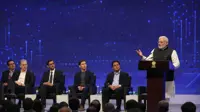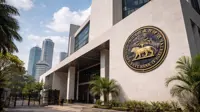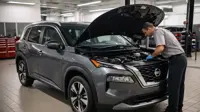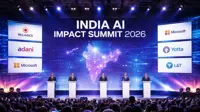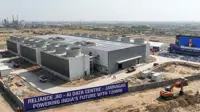Australia’s special trade envoy and former Prime Minister Tony Abbot has called for early harvest deals with India ahead of a full-scale Comprehensive Economic Partnership pact or a free trade deal.
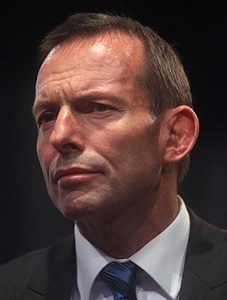
Abbot called New Delhi’s decision to opt out of the China-sponsored Regional Comprehensive Economic Partnership (RCEP) a “shrewd move”, even as he defended Australia’s decision to join the trade block.
The former Australian PM made the remarks while addressing the media in New Delhi after talks with union minister of commerce and industry Piyush Goyal.
“It was a smart move by India to move out of the RCEP, so we could focus on the bilateral deal between India and Australia,” he said, adding, “Australia has what India needs to ensure that 'Make in India' becomes a reality.”
The 2012 RCEP was a trade pact between the 10-nation Association of Southeast Asian Nations (ASEAN) and the five ASEAN Plus states - Australia, China, India, Japan, New Zealand and the Republic of Korea.
India, however, decided to pull out of the REEP after experts warned that the trade deal would only help Beijing to expand its trade manifold, while others would lose even their existing gains. India, already pressed by a huge negative trade balance with China and increasing concerns of cheaper Chinese imports, opted out of the pact last year.
Abbot hailed India for its democracy and good business sense, even as he lambasted the communist country stating that it has "weaponised trade."
"Over last few years, I've seen a very different China. What we're seeing from China is the weaponisation of trade. Around 20 billion dollars worth of Australian trade was arbitrarily suspended by China. Under such circumstances, it is difficult to see China as a trusted partner," Abbot said while addressing the media in the aftermath of the meet.
During talks with Piyush Goyal in New Delhi, Abbot deliberated upon bolstering bilateral trade between India and Australia. He also suggested ways to increase economic cooperation with India.
New Delhi, he said, can now position itself as a “trusted” and “reliable” trade partner and replace Beijing.
Abbott said New Delhi and Canberra can clinch a “bigger rather than smaller” early harvest trade deal by end of this year or early 2022, which will be followed by a larger free trade agreement (FTA), officially called Comprehensive Economic Cooperation Agreement (CEPA).
Abbott is visiting India as Australian PM Scott Morrison’s special trade envoy to New Delhi.
Abbott said Australia decided to join the RCEP much before he came to power and was “optimistic” about Beijing, but it has now realised that China uses trade for politics and geopolitics.
“For Australia, the RCEP train left the station long before I became the PM. While I was PM, we were still pretty optimistic about China. What became more abundantly clear in the more recent years is that for China, trade is politics, and in fact geopolitics by other means. And at least in Australia’s case, China was quite prepared to weaponise trade against us,” he said.
“Now, there is also no doubt. As far as China was concerned, RCEP was part of its political as well as its economic diplomacy, and that’s why it is very significant when at the eleventh hour PM Modi and Minister Goyal said this is a step too far and not good for long-term period… It was a shrewd move on India’s part,” he said.
“Once India withdrew from RCEP, I think that was a very smart move if I may say so, from PM Modi and from minister Goyal, we put our own bilateral talks back onto the fast-track and again all credit here to PM Morrison for being every bit of keen as I was,” added Abbott, who also visited Mumbai during his visit.
RCEP is currently the world’s largest FTA that has been signed by 10 ASEAN members — Brunei Darussalam, Cambodia, Indonesia, Lao PDR, Malaysia, Myanmar, Philippines, Singapore, Thailand and Vietnam — and their five trading partners, China, Australia, New Zealand, Japan and South Korea. It encompasses 30 per cent of global GDP.
Abbott said all countries are currently experiencing “trade tensions” with China and hence it is the most opportune time for India because “much of the world is looking to substitute for China in supply chains”.
“India is the obvious alternative because almost no country has India’s capability to manufacture at that scale. This is why I believe India is on the threshold of a real economic take-off not just domestically but internationally as well,” he said.
A comprehensive trade deal between India and Australia will not only give an economic dimension to the Quad grouping, it will also enable New Delhi to clinch many such trade deals with other countries that are democracies with a rule of law, Abbott said.
Abbott also hinted at the fact that, under the early harvest deal, Australian wines may get greater access to Indian markets by way of reduced tariffs, an issue that became a major stumbling block between the two countries when they were negotiating a deal after the talks began in 2011.
“One of the titanic areas where I think we can make strong progress even in an early harvest (agreement) is wine. I am not encouraging anyone to become a drinker. But nevertheless if you do enjoy the occasional glass of wine then nothing better value than Australian wine,” he said.
“I think those who currently enjoy Australian wine know just how good it is. I am hoping more and more people in India get an affordable opportunity to experience the great Australian wine in the months and years ahead,” he added.
Abbott said exports of wines and spirits from Australia will also be part of the larger comprehensive deal. The issues of export of dairy products from Australia, which proved to be a hurdle before, will be smoothed out, he added.
“Dairy is one of the sensitive sectors… Australia is not a predatory trader. We are a free and fair trader and our objective is not to disrupt, our objective is to partner,” he said.
He also underlined that a trade deal with Australia would mean easy access to rich resources of coal, iron ore and lithium for India. “These are exactly what is needed to make ‘Make in India’ the best possible deal for India and indeed for the wider world,” he said.
The former Australian PM said the timetable for the early harvest deal that was set between Commerce Minister Piyush Goyal and his Australian counterpart Dan Tehan in October is on track.
“We can do a very good early harvest deal, which is larger rather than smaller, by the end of the year or the least very early in the New Year. Now is the appropriate time,” Abbott said.
“Australia absolutely accepts that because of the particular nature of Indian agriculture — there are very much small family farms as opposed to the much larger commercial operations in Australia. We absolutely accept that there are some important sensitivities in Indian agriculture,” he said.
“There, almost inevitably, have to be some important carve-outs for Indian agricultural elements in what is a good and fair deal between our two countries. That said, I believe, we can make strong progress,” he added.
“The difficulties with China mean India has quite an opportunity to step in particularly with supply chains and you know is absolutely reliable,” he added.

